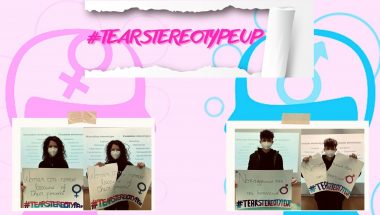Stories that Move
The online toolbox about diversity and discrimination
 English
EN
English
EN
 EnglishEN
EnglishEN DeutschDE
DeutschDE NederlandsNL
NederlandsNL MagyarHU
MagyarHU PolskiPL
PolskiPL SlovenčinaSK
SlovenčinaSK УкраїнськаUK
УкраїнськаUK EspañolES
EspañolES CatalàCA
CatalàCATeachers know the stories we tell are influential: they may support students in difficult circumstances or highlight areas for action. Real-life stories make history classes more engaging, inclusive and democratic, especially if connected to present-day issues of discrimination.
Using Stories that Move as a tool for understanding the past and the present has the great benefit of flagging up marginalised histories, filling gaps; it brings out an alternative and expansive curriculum that helps us all re-examine our historical knowledge.
Working in class with the StM ‘Discrimination machine’ (Learning path 2, Facing Discrimination), exploring how easy it is to unthinkingly activate processes of grouping and judging, my students thought about forms of discrimination they might face in their everyday lives that can be replicated and legitimised by ignoring the mechanisms underlying it.
My students particularly appreciated StM’s peer approach, which allowed them to deeply identify with the narrated stories. So much so, that one exclaimed during a class debate: “Admit it, none of us are immune to bias!”. StM is like a mirror to look into themselves.

I used the Learning path 3 Life stories extensively, too, because they provided students with a new lens to look at historical sources. Students were especially intrigued to pick up clues about the stories from the objects, such as the rucksack in Miep Gies Santrouschitz’s story.
Stimulating their curiosity using the see-think-wonder routine motivated them far better than driving them to study. Studying history “from the back door”, that is from the point of view of secondary characters such as Miep instead of the main protagonists, such as Anne Frank, increased their involvement.
I would like to connect StM to the EU’s Europeana cultural portal. I am a teacher of history and civil education at Liceo Scientifico Diaz, in Caserta, Italy and my students are 15-16 years old.
back to top